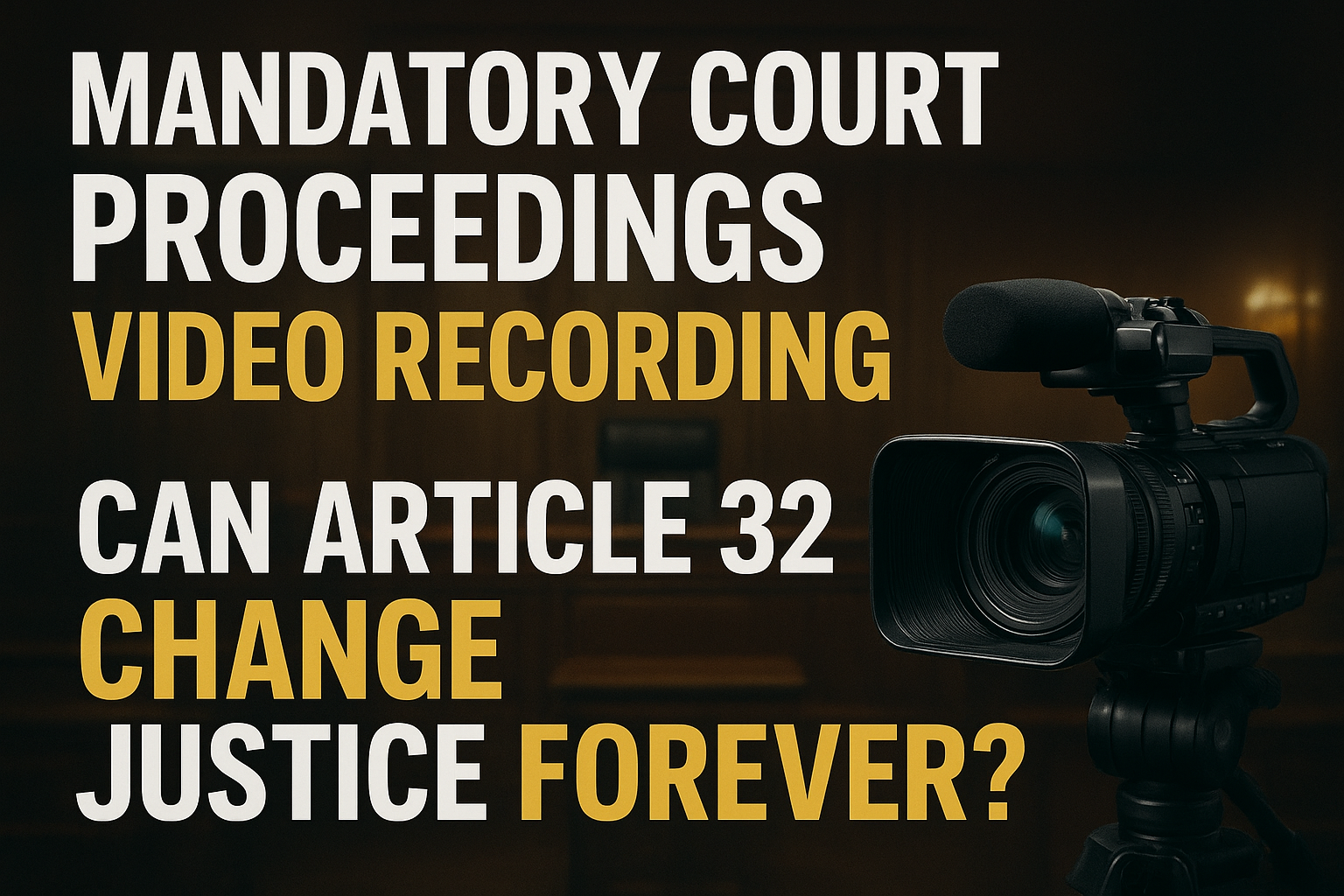Introduction
The foundation of the Justice system is Transparency. The recent concerns about fairness, accountability, and equal treatment in court has increased. The writ petition has been filed recently and brings this point in front of the court and requesting for the “Mandatory Court Proceedings Video Recording”. The reason it grabs everyone’s attention is the petition directly linked with the fundamental rights and the people’s trust in the judiciary. If this is applied, then this will really help the people to rebuild confidence in the courts.
Background
The writ petition has been filed by the Advocate Mathews J. Nedumpara’s it seeks forward to the demands that: –
- All the court proceedings should be recorded.
- The recording of the proceedings should be available to the parties; lawyers for at least six months of time.
- If any kind of disrespect and other illegal activity is caught in the recording the Judicial officer should be held accountable.
The demand of the petition is clear and straightforward that the recording is mandatory to keep watch on the court room behaviour, and no one should face injustice in the house of justice itself for that the justice system needs to become more transparent and equitable for everyone.
What is Article 32 of the Constitution of India?
The Article 32 of the Constitution of India allows the citizens to approach the Supreme Court directly when their Fundamental Rights are violated. In this petition the lack of transparency in the courtroom behaviour amounts to the violation of the right to equality and dignity under the Article 14 and Article 21 of the Indian Constitution.
Benefits and Limitation
Benefits
- The most often complaint of the advocates and the clients are that they had faced discourtesy during the hearing. So, the recording of the proceeding would help them act as a safeguard.
- The work and the behaviour of judges, advocates will definitely improve, and they will start acting responsibly.
Limitation
- The major concern is that the video recordings contain sensitive data, and the court must make strict rules for the access of the video recordings of the proceedings.
- In India there are so many courts, and the costing of the video recordings infrastructure will need money and space to store the recordings in the storage system, so for that the logistical planning is crucial.
- The main challenges start when these rules apply for the district courts as the High Court and the Supreme Court will adapt it quickly but imposing this rule to district courts and lower courts is a challenge.
Conclusion
The petition filed in the Supreme Court of India assures the fairness in the justice system but came with the challenges and the imposing of the rule also take so much of the capital, storage and other important aspects but this is not only a technical reform it is a constitutional demand for the fairness and transparency in the justice system. The Apex Court has considered the petition, and the final decision could mark a turning point toward a more transparent and trustworthy judicial process.
About the Author
Tushar Kumar is a final-year BBA-LLB student at Guru Gobind Singh Indraprastha University. With a strong interest in Intellectual Property Rights, he enjoys exploring how law interacts with innovation and creativity. He’s equally passionate about legal writing, Research and believes in making complex legal ideas easier to understand through clear articles. Tushar continues to deepen his understanding of the law while contributing thoughtful pieces on contemporary legal issues.

